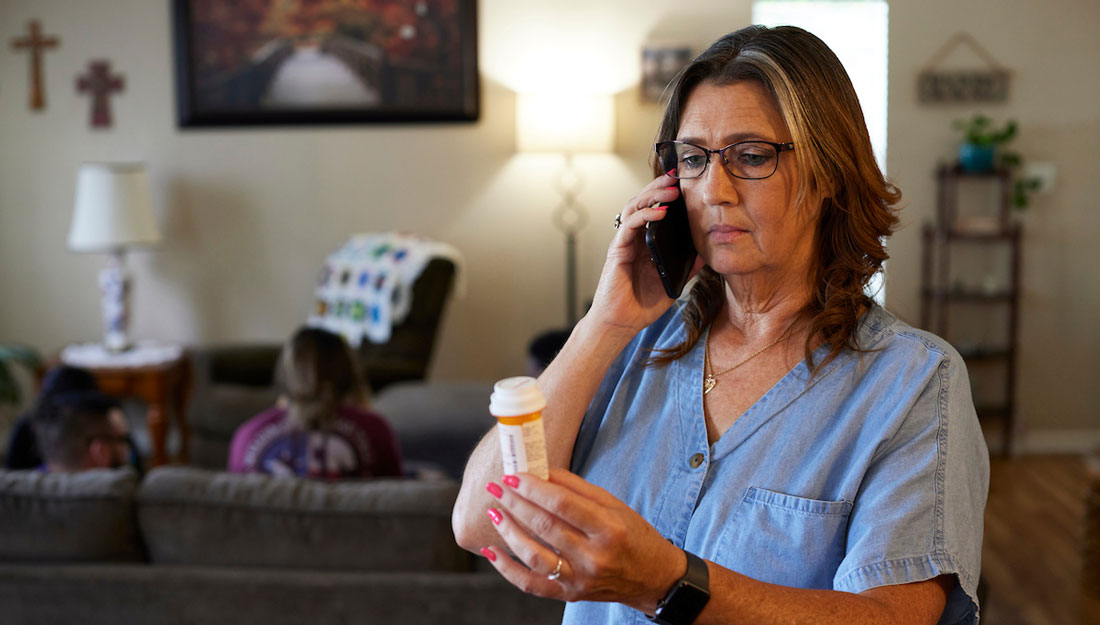- Dominic Hernandez
- Healthy Living, Pharmacy, Show on VR homepage, Trending
Benzodiazepine versus SSRIs: What is right for you?
What to know before you take either of these medications

According to the Anxiety and Depression Association of America (ADAA), anxiety disorders are the most common mental illness in the United States, affecting 18 percent of the population every year. It’s also not uncommon for someone with anxiety to suffer from depression (or vice versa), as the National Institute of Mental Health called depression the world’s leading cause of disability.
There are many different treatment possibilities, and one Texas A&M pharmacist talks about two of the most common medication types, when to talk to your physician about these options and how to take these medications safely.
What is benzodiazepine?
One of the more common prescription medications for anxiety is benzodiazepine (brand names Xanax or Valium), a tranquilizer used to treat insomnia and general anxiety disorder (GAD). It is typically given at a very low dose for short amounts of time.
“You don’t want to give benzodiazepine for long periods of time because it has high abuse potential,” said Victoria Pho, BS, PharmD, CGP, clinical assistant professor at the Texas A&M Irma Lerma Rangel College of Pharmacy. “It also has side effects that can increase the risk of falls, such as drowsiness, poor coordination and weakness.”
Benzodiazepine therapy and fall risks are a major concern, especially in geriatric patients. However, care and medication selection can be tailored base on patient’s need of short-term, or long-term, relief.
If you take a benzodiazepine, it is important to not drive or do anything that requires alertness or that can be potentially dangerous—such as using power tools. Alcohol should be avoided when on benzodiazepine therapy, as the combination can have a dangerous effect if taken together since they both are central nervous system (CNS) depressants and can lead to harmful effects—such as respiratory depression that can lead to slow or ineffective breathing and in severe cases, death.
This drug and alcohol interactions can be common for people who struggle with social anxiety and may not be aware of potential risks of drinking and taking these medication. They could possibly take a benzodiazepine for the social anxiety and then have a drink to help them “feel relaxed” before, or during, a social event that may have alcohol.
“Alcohol also hurts the liver, and a healthy liver is needed to help one’s body break down medications and other potentially harmful products,” Pho said. “In combination, benzodiazepine increases the patient’s risk of sedation, so drinking alcohol can be a double dose of sedation and increase one’s risk of fall or accident.”
What are SSRIs?
Selective serotonin reuptake inhibitors (SSRIs) are anti-depressant medications, and they enhance the function of nerve cells in the brain that regulate emotion. Serotonin is a neurotransmitter that delivers signals between brain cells. When these brain cells send signals to one another, they release a neurotransmitter that delivers the message. They then take back the neurotransmitter they released so they can send the next message. The process of replacing the neurotransmitter is called “reuptake.”
In the physiology of people struggling with depression, there could be an imbalance of these vital chemicals, the areas that regulate mood and send messages using serotonin might not function properly, and SSRIs make more serotonin available by blocking the reuptake process. This allows serotonin to build up between neurons so messages can be sent correctly.
“SSRIs are used for depression or anxiety,” Pho said. “They are one of the first-line therapy choices for depression. These medications are not quick fixes and need time to be effective. It’s important to be patient with these medications and to not miss doses.”
For some people, it may take up to six weeks for the benefits of SSRIs to be noticeable.
In addition to depression and anxiety, SSRIs can be effective for other medical conditions like obsessive compulsive disorder (OCD), post-traumatic stress disorder (PTSD) and other mental disorders. There are other drug classes available for depression, and drug selection is often patient-specific that consider drug cost, drug-interactions, possible side effects and patient preferences.
“Less is more” approach
When it comes to depression or anxiety, health care providers won’t automatically reach for the prescription pad as if it were an infection that required antibiotics. Many times, they’ll try non-medicinal approaches first and rely on medication when necessary.
Providers may recommend non-pharmacological recommendations or lifestyle modifications to address the anxiety or depression disorders. Increasing physical activity, relaxation technique such as deep breathing exercises are a couple of ways to reduce stress and anxiety levels and improve mood.
“At first, we like to ask, ‘Can we treat without medication?’” Pho said. “A provider might recommend cognitive behavioral therapy, group therapy or other non-pharmaceutical approaches for initial recommendations and referral to psychiatry clinic for evaluations and assessments.”
All medications come with a chance of side effects, and taking more and more medication can have increasing side effects or adverse reactions to other medications and increase risks of potential harmful drug interactions. However, in many cases, medication is required.
“Depression and anxiety are both mental illnesses, and if there is a medical reason, or evidence how the disorder effects patient’s quality of life or living, medication therapy can provide the care and help needed. Together with the patients as a team, provider will weigh the risks and benefits with each medication therapy.”
Be open with your provider
If you’re taking these medications, it’s best to have an open and honest dialogue about how these medications are affecting your daily life.
Benzodiazepine, which can reduce coordination and energy, also can cause nausea, headaches and nervousness. SSRIs can also cause nausea, dizziness, insomnia, weight fluctuation, dry mouth, reduced libido and insomnia. Suicidal thoughts and depression can occur while on these medications, so it’s important to talk to your primary care or mental health provider about your side effects.
If you do start taking benzodiazepine or SSRIs, Pho recommended to let your provider or pharmacist know about other medications you may be taking so they can help to make sure you’re taking all of your medications properly and help prevent and identify potential drug interactions. Bring all of your medications to all of your appointments with your primary care provider including your herbal, supplements and over-the-counter medications together with your prescriptions.
“If you’re taking benzodiazepine, make sure you’re taking it at the time prescribed, and talk to your provider if you are pregnant or planning to get pregnant to ensure safe medication use, time for provider to recommend alternative therapy for your medical need and prevent harm to you or your unborn child,” Pho said. “Make sure you’re not crushing, breaking or chewing your medication, and when it’s time to stop taking the SSRI, talk to your provider about safely reducing the dose instead of stopping the medication abruptly.”
Media contact: media@tamu.edu


